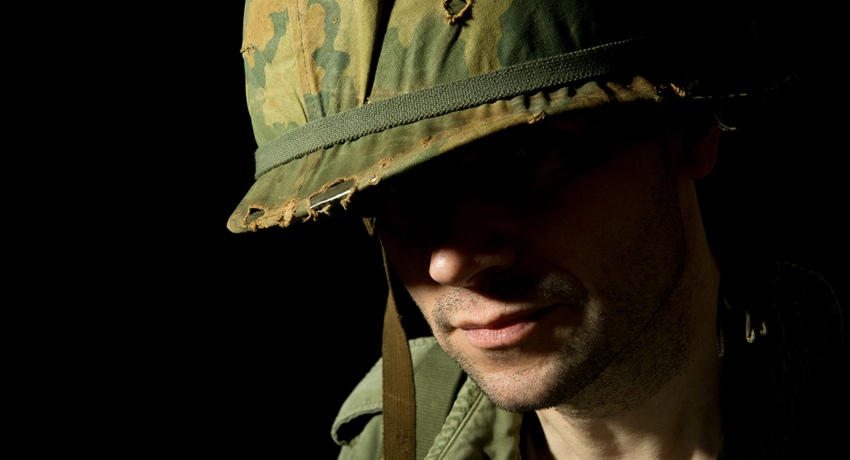Daniel Craig returned home from combat in the 1991 Gulf War “disillusioned, disenchanted and pissed off” that he had “killed people for these damned lies.” Two decades earlier, Gregory Ross had come home from the American War in Vietnam feeling “numb…completely unmoored.” And Wilson “Woody” Powell said he’d felt “out of sorts, that I didn’t fit anywhere,” following his 1953 deployment in the Korean War.
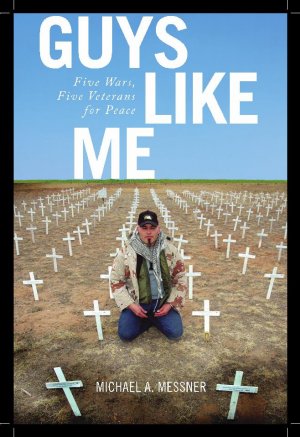 These three veterans fought in different wars, but there are stark similarities in their stories, and with others I interviewed for my book Guys Like Me. After returning from war, each kept his experiences to himself. And each turned to alcohol, and sometimes other substances, to deal with their emotional trauma. But, after many years of work, each sobered up, found his voice, and committed himself to personal healing, service to others, reconciliation with former enemies, and public activism with the multigenerational organization Veterans for Peace.
These three veterans fought in different wars, but there are stark similarities in their stories, and with others I interviewed for my book Guys Like Me. After returning from war, each kept his experiences to himself. And each turned to alcohol, and sometimes other substances, to deal with their emotional trauma. But, after many years of work, each sobered up, found his voice, and committed himself to personal healing, service to others, reconciliation with former enemies, and public activism with the multigenerational organization Veterans for Peace.
Like Craig, Ross and Powell, veterans of wars are often plagued by what I call ‘manly silence’. The foundation for this emotional fortification rests on narrow definitions of masculinity, internalized at an early age and enforced and celebrated in masculinist institutions like the military. Such rigid masculinity is not confined to the military. Research shows that men routinely respond to stressful life experiences by avoiding emotional disclosure for fear of appearing vulnerable. Silence is a logical outcome of internalized rules of masculinity: a ‘real man’ is admired and rewarded for staying strong and stoic during times of adversity.
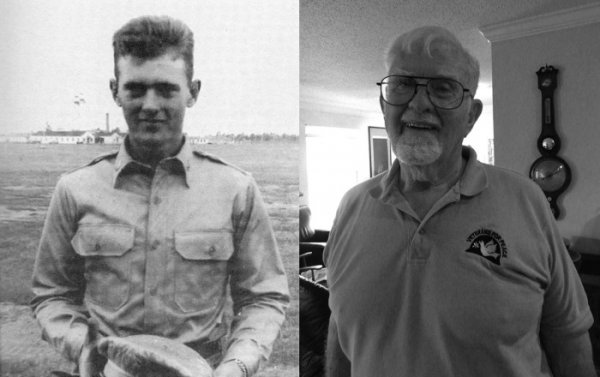
Korean War veteran Wilson “Woody” Powell
Who benefits from this manly silence? Certainly, institutions like the military rely on men’s private endurance of pain, fear, and trauma. But individual men (and women) rarely benefit from such taciturnity. Rather, attempting to embody this narrow ideal comes with severe costs for men’s physical health, emotional well-being, and relationships. Researchers and medical practitioners have compiled lists of the costs men pay for adhering to narrow definitions of masculinity: undiagnosed depression; alcoholism, heart disease, and risk-taking that translate into shorter lifespans; fear of emotional self-disclosure and suppressed access to empathy, resulting in barriers to intimacy. Veterans of wars—especially those who were multiply-deployed—amplify these costs of masculinity, adding elevated rates of suicide, sexual assault, domestic violence, and homicide.
Who benefits from this manly silence?
During the American War in Vietnam, the cluster of trauma-induced physical and psychological symptoms commonly suffered by war veterans was given a formal diagnosis: Post-Traumatic Stress Disorder. What causes war veterans’ PTSD? A common view is that the sustained levels of fear create lasting psychological fears. Others point to physical wounds as causing PTSD. In my interviews, as I listened to narratives of shame and anger, I sensed something more. I got some hints from Dave Grossman’s, On Killing, in which he argues that the most powerful cause of PTSD is the shame and denial that follow the ‘burden of killing’ other people in war.
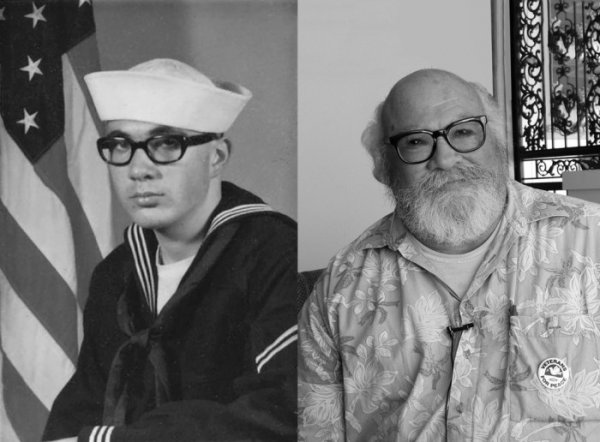
Vietnam War veteran Gregory Ross
This focus on the internalized shame one carries from having killed others led professionals who work with veterans to focus their interventions on what they began to call ‘moral injury‘. Clinical psychologist Brett Litz and his colleagues argue that while PTSD results from internalized fear reaction to threat, moral injury results from negative emotions about oneself, one’s own character, grounded in shame, remorse, and self-condemnation over what one has done to others. It is characterized by having severely and irredeemably transgressed one’s own moral compass.
Several of the men I interviewed for Guys Like Me expressed this kind of shame and remorse—both for individual acts they committed and for the shared collective responsibility for killing enemy soldiers and civilians in what they came to believe were unjust wars. Some, like Woody Powell, strove to “become more honorable” through reconciliation with former enemies. Others, like Gregory Ross, sought to pay back his “karmic debt” by providing service to other vets and to people addicted to drugs. Similarly, Daniel Craig cares for homeless people in his community. All three also engage in collective projects, working for peace and social justice.
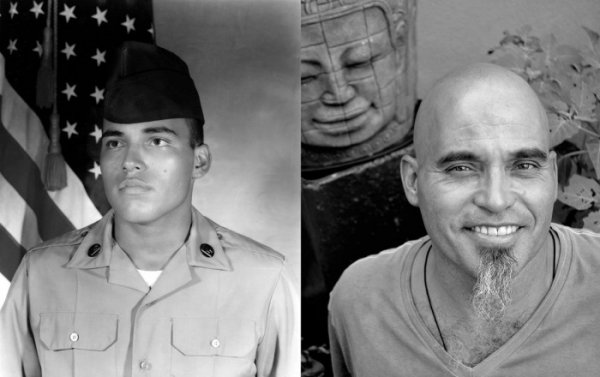
Gulf War veteran Daniel Craig
The emotional foundations of the work these men take on to heal themselves and their communities began with efforts to overcome crippling states of manly silence. None of them experienced what I would call a feminist transformation, though Gregory Ross did join a pro-feminist men’s antiviolence group in the late 1970s. But their stories reveal how in joining the military and deploying to war, each had been sold a narrowly destructive ‘manhood package’ that was intended to make nonreflexive warriors of them.
Their stories reveal how in joining the military and deploying to war, each had been sold a narrowly destructive “manhood package”
Each of the men profiled in my book eventually rejected this manhood package, and this meant accepting, talking about, and sharing their emotional vulnerability with others. It meant, in many cases, learning to respect women as colleagues and allies in collective efforts for justice. And it meant rejecting pop culture military heroes and finding flesh-and-blood heroes—women and men in their own lives, who have inspired their commitments to working for a more peaceful and just world.
This article, including the images, was originally posted on Gender & Society and has been reproduced here with permission. Read the original here.
